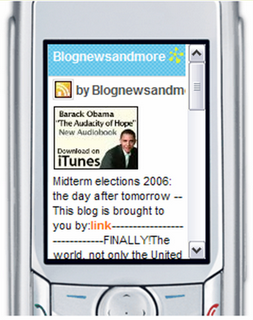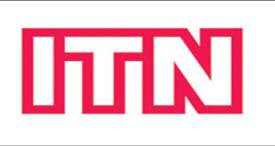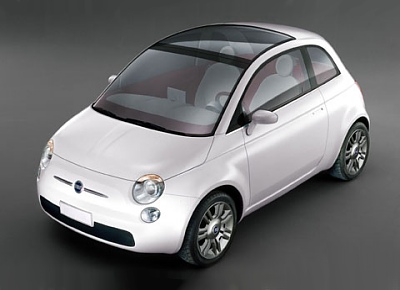Exclusive with Bill Clinton (only on Blognewsandmore)



Apple 4GB iPod nano RED, Just $199. A portion of each sale goes to fight HIV-AIDS in Africa.
---------------------------------
The Power within: a passion for life.
I never thought during my entire life to have the opportunity to be seated on a “quasi” comfortable chair at the Javits Congress Centre in New York City and being part of a selected group of people who had the privilege to hear almost one hour speech of the former president of the United States: William Jefferson Clinton.
It was the end of brilliant day organized by “The Power within – a passion for life” (http://www.powerwithin.com/) and sponsored by The New York Times.
I had already listened to the speeches of extremely successful people like:
Mark Burnett – television producer of “Survivor” and “The Apprentice”
Jonathan M. Tisch - Chairman and CEO of Loews Hotels
Peter Guber – Founder and Chairman of Mandalay Entertainment and former CEO of Sony Pictures Entertainment
Michael D. Eisner – CEO Walt Disney Company (1984-2005)
Lance Armstrong – 7 times “Tour de France” winner
and finally, the real cherry on the cake, Bill Clinton.
When he arrived on the stage I couldn’t hide my emotion and I jumped clapping (it was a real standing ovation). I was there, no more than 6 rows from him … and I didn’t even take a picture of him. I looked like a high school teenager at his first party (sounds stupid, I know!), but maybe the hunger to hear something meaningful after so many years of "intellectual Sahara" made me behave like that.
He smiled, as usual, and you feel it’s going to be a good speech, you feel he‘s going to tell you something new and finally you feel his charisma and … that you are protected by the best speaker I have ever heard.
And then he started ….
“ You cannot understand the power within if you cannot relate to someone else. The Africans call it “Ubutu” – I am because you are”.
“To understand the power within you have to ask and answer 4 questions. It’s not important if you agree with me, it’s important you’ve got the answers.
1) What is the fundamental nature of the 21st century?
9/10/2001, the day before the attack, I would probably have answered “globalization” , better “interdependence”.
A – explosive increase in diversity in the nations. 1 Trillion dollars a day cross the world (I have a cousin in Arkansas playing chess every day with a guy in Australia via Internet).
B – we can’t get away from each others, in good or in bad. A billion people earn less than $1 a day, 2.5 billion people are at risk of AIDS and diseases, 130 million people don’t go to school.
In Bolivia a native Indian American has been elected as president of the country. It’s not good for the corporations but it’s good for the people.
We are vulnerable to differences. Israeli and Palestinians shifted from dialog to fight after I left.
2) How would you like to change this world for your children and grandchildren?
From “interdependence” to “integration” – belonging to a community (positive interrelationships). Share responsibilities.
3) What are the steps to pass from “interdependence” to “ integration”?
A – Security policies for people who deal with terror.
B – Prospects for untreatable deceases.
C – Climate changes and clear plans for repair the damage and research for alternative energy.
D – Policies for Terrorism. There are today a lot of proven strategies on practically “anything” .They are cost effective and better than Wars ($380 billion in Iraq - $2 billion every day, $97 billion in Afghanistan) which have much higher costs than returns and benefits.
A great example comes from the Tsunami disaster in Indonesia. My association supported the victims and the reconstruction in the biggest Islamic country in the world and the result was that the Indonesian see the United States in a different way respect to the other Islamic countries.
E – This in an interdependent world and we cannot invade any country we don’t like.
F – Diplomacy in cooperation with others and talking with your enemies. Isolation and sanctions bring to exasperation in relationships and damage to the people in these countries who definitely don't thank you for that.
G – Better life at home
H – Better understanding of the developing countries and show them good examples and investments in their life and their way of thinking and living.
I – Follow the security recommendations of the 9/11 commission.
J – Economic challenge – wages are stagnant since 1973.
K – Healthcare. In Europe there is the 100% heath coverage vs. the 80% in the United States (32 position in the world). GM cars health insurance is $1500 vs. $110 of Toyota cars. 3% increase of people without health insurance vs. 32% in the number of Heath Insurance employees. Diabete rising 27% as well as obesity (cut in transfat food).
L – The United States borrow money from U.K, Saudi Arabia and even Mexico to cover tax cuts for the soldiers.
M – Find periodically new sources of jobs otherwise everything can be outsourced (Denmark and U.K. increased their economy of the 50%. Travel and learn from countries with recognized success (the levees structure in the Netherlands).
4) What Was I supposed to do with it?
A – private citizens can do a much better work than public administrations now more than ever (example: during the SAR epidemic young people jammed the Chinese government website for answers).
B – Internet power (Tsunami, Katrina). In the Netherlands they have a lottery based on the zip codes so that the money is re-distributed among many people and the tax costs go into charity.
C – Things we can all do because we really have no alternatives.
The human genoma has been completed. All the human being are 99.9% equal. We concentrate only on 0.1% of difference to create racism, homophobia and xenophobia."
































































